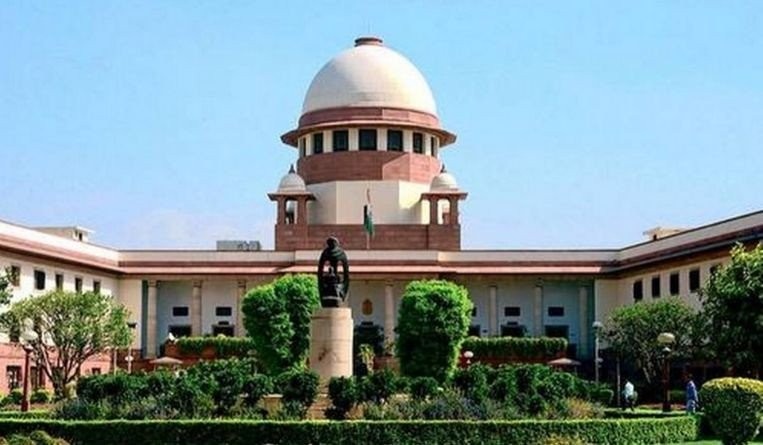Breaking down ‘crystallization’ of rights of a patentee: The Enercon order
31 May 2020

Image credits: thehindu.com
Doubts remain over the Supreme Court of India’s obiter dicta in the Enercon order, but Tusha Malhotra and Ashutosh Upadhyaya show that courts are of the opinion a patent holder is not required to wait for a year to file an infringement lawsuit.
This article clarifies the lingering doubts around the observation made by the Supreme Court of India in the decision of Aloys Wobben v. Yogesh Mehra (the Enercon order), which have had serious ramifications in the field of patent litigation in India.
The Supreme Court, while deciding upon the issue of maintainability of multiple challenges to a patent in form of revocation before the Intellectual Property Appellate Board (IPAB) and counterclaim in an infringement suit,made a few incidental observations in Paragraph 18, which became a godsend defence for infringers.
Under Paragraph 18 of the judgment, the court observed:
“If and when, challenges raised to the grant of a patent are disposed of favourably, to the advantage of the patent holder, the right to hold the patent can then and then alone, be stated to have crystallized. Likewise, if no notice of opposition is preferred, within one year of the date of publication of the grant of a patent, the grant would be deemed to have crystallized. Thus, only the culmination of procedure contemplated under Section 25(2) of the Patents Act, bestows the final approval to the patent. Therefore, it is unlikely and quite impossible, that an ‘infringement suit’ would be filed, while the proceedings under Section 25(2) are pending, or within a year of the date of publication of the grant of a patent.”
Scope of Paragraph 18
Infringers interpreted the aforesaid observation to suit their own cases. Taking advantage of the last sentence, infringers could simply file a post grant opposition the moment any patent is granted and flood the market with their products. The situation turns bleak for innovators, as for the next year, they are “unlikely” and it is “quite impossible” to initiate any action against the infringer. This is because as per Paragraph 18 of the Enercon order, despite the grant of the patent, the rights of the patentee have not yet crystallized and, ultimately, the fate of the patent holder is sealed until the opposition is decided, which can take several years.
The High Court of Delhi in the matter of Pharmacosmos Holding A/s v. La Renon Healthcare Pvt. Ltd. and Anr raised similar apprehension. The court said that “unless frivolous post grant opposition filed, intended only to freeze the rights of the patentee are dismissed in limine, such a procedure or such an interpretation would cause immense hardship for a patentee.”
Legal implications of Paragraph 18
The observations made in Paragraph 18 of the Enercon order are sub silentio. It is imperative to mention that, before the Supreme Court, neither any issue in reference to the aforementioned observation was raised by any of the parties, nor any arguments were addressed before the court, and no discussion or detailed reasoning was made by the court on the said observation. Therefore, such observations are legally considered as obiter dicta.
Obiter dicta
The Latin term obiter dicta, which literally means “things said by the way”, is a judicial comment made while delivering a judicial opinion, but one that is unnecessary to the decision in the case and therefore not precedential.
Halsbury’s Laws of England defines dicta as “statements which are not necessary to the decision, which go beyond the occasion and lay down a rule that it is unnecessary for the purpose in hand... They have no binding authority on another court, although they may have some persuasive efficacy. Mere passing remarks of a judge are known as obiter dicta, whilst considered enunciations of the judge’s opinion on a point not arising for decision, and so not part of the ratio decidendi, have been termed ‘judicial dicta.’”
Authoritative value
We will begin by analyzing the precedential value and the binding nature of obiter dicta. The Supreme Court in its landmark decision has clarified the binding nature of obiter dicta. In the matter of Municipal Corporation of Delhi v. Gurnam Kaur, the apex court held that the pronouncements of law which are not a part of the ratio decidendi are classed as obiter dicta and are not authoritative. The court further clarified that a point that is decided without arguments, without reference to the crucial words of the rule and without any citation of authority, was not binding and would not be followed.
Clearly, in the Enercon order, the observation of the Supreme Court falls squarely within the ambit of obiter dicta. It may be argued that the same is merely a casual expression which must not be treated as an authority, and hence, not binding.
Legal position under patent law
The Patents Act, 1970
At this point, we bring to our readers’ attention that under the Patents Act, 1970 there is no bar, neither expressed nor implied, on filing of an infringement suit after the grant of a patent and while the proceedings of post grant opposition (Section 25(2)) are pending. Rather, Section 11A(7) of the act provides that an applicant for a patent shall not be entitled to institute any proceedings for infringement until the patent has been granted. A bare reading of the provision elucidates the intention of the legislature to afford the patent holder the right to institute an infringement from the date of grant of patent.
One must cogitate upon the fact that Section 25 is not a non-obstante clause, has no overriding effect and therefore, cannot be read in isolation. One must read Section 25 along with Section 48 of the Patents Act, 1970, which lists down the rights of a patentee.
Case law
The High Court of Delhi, in the case of Novartis AG and Anr. v. Natco Pharma Limited, categorically stated that even if the rights in the patent are yet to be crystallized during the pendency of the post-grant opposition, the rights in favor of the patentee in terms of Section 48 of the Patents Act, 1970 are not affected, during the pendency of the post-grant opposition. This judgment provided clarity to the observation made the Supreme Court in the Enercon order.
The crystals turned clearer once the High Court of Delhi passed its judgment in the matter of CDE Asia Limited v. Jaideep Shekhar and Anr, in which it held in Paragraph 14:
“As the rights in favour of a patentee enure to its benefit on grant of the patent under Section 48 of the Patents Act, even though the said right may not have finally crystallized, pending post-grant opposition, in view of the subsistence of the right of the patentee, and there being an alleged infringement, the patentee is not required to wait for one year period to sue for infringement and thus the present suit cannot be held to be not maintainable and liable to be dismissed as premature.”
Conclusion
The courts are, thus, of the opinion that even though rights of a patentee may not have crystallized, pending post-grant, a patent holder is not required to wait for a year to file an infringement lawsuit in view of the subsistence of the right of the patentee as per Section 48 of the Patents Act, 1970.








